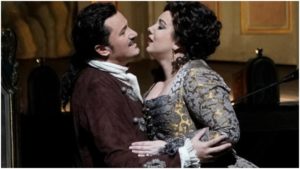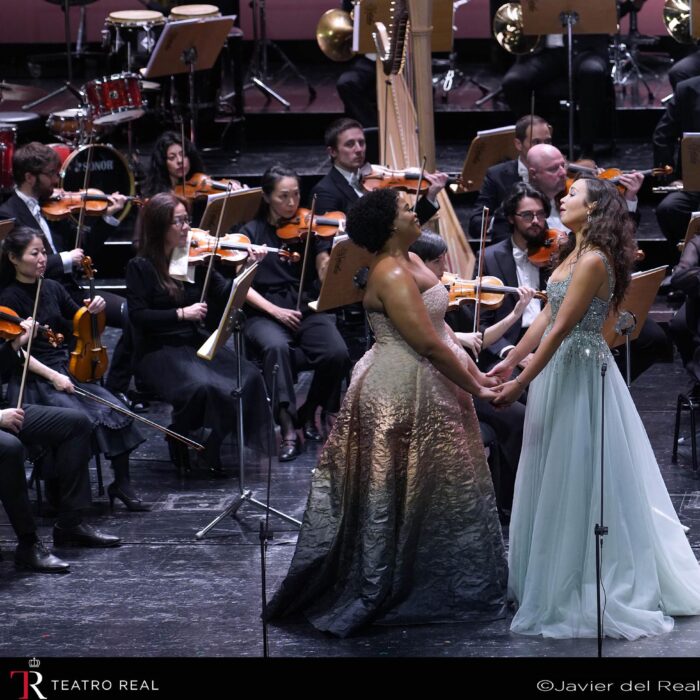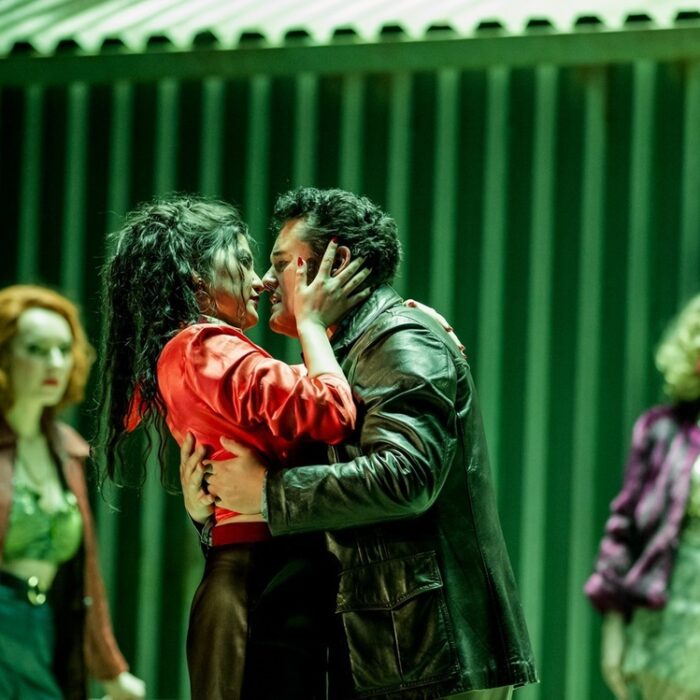
Metropolitan Opera 2018-19 Review: Adriana Lecouvreur, Jennifer Rowley Edition
By David SalazarThe Metropolitan Opera completed its run of “Adriana Lecouvreur” on Saturday, Jan. 26, 2019.
This opera had already been experienced and reviewed by OperaWire earlier in the run, but the high quality of this showcase was so great, that it felt worthwhile to check it out again, albeit with a major casting switch.
Stronger Than Ever
Those who had appeared in the early performance were even better this time around. Anita Rachvelishvili, who really hit hard with her imposing presence and voice, was that much more confident and driven this time around. No doubt that the artist would have more comfort by this point with eight performances under her belt. She took more vocal risks and they paid off in spades.
The same could be said for tenor Piotr Beczala, who we noted in the earlier review struggled at times with the breath support during “L’anima ho stanca,” despite an overall brilliant performance. But that very aria might have been his greatest moment this time around and the breath support was not only intact but simply incredible. How he wove those long phrases with such precision and a seemingly endless supply of breath is truly mesmerizing to consider. Beczala is undeniably in the conversation for best tenor in the world right now; he keeps getting better and better and soon there might be no doubt that he’s right at the top.
OperaWire’s previous writer had a bone to pick with maestro Gianandrea Noseda and his style in that earlier performance. On this night, he was in far stronger shape. The orchestra still tended to shoot over some of the voices and drown them out, but there was no doubt that everyone had a strong understanding of how the music would flow on the night. There were no gaffe’s of timing and the ensembles were on point throughout the night.
A Truly Vulnerable Adriana
The biggest change on the night was in the title role with Jennifer Rowley. The American soprano starred prominently over the course of the last two seasons at the Met. In 2016-17 she stepped in to dominate a run of “Cyrano de Bergerac.” In 2017-18, she also stepped into a run of “Il Trovatore,” sandwiched between select performances of “Tosca.” Safe to say, she is becoming part of the fabric of artists at the Met and her star will undoubtedly grow after the two “Adriana Lecouvreur” showcases she put on.
As the famed actress, Rowley was far more vulnerable than many other portrayals. You saw transitions between her being the actress that’s putting on an act and in other moments saw her as a young woman grappling with the challenging personal difficulties she must battle. It was never about being an imposing diva at all time, but a constant switch of masks, ultimately merging into that of a tragic heroine. When in private moments, either listening to Michonet talk about marriage or Maurizio use her as a metaphor for his military victories, you sensed her just enjoying herself without taking any of it too seriously. It was all fun and games and her smile lit up the space. As the story developed and Adriana finds herself coming to terms with her reality (Michonet’s warning that “We are poor people”), you could sense this girlish charm dissipating. There were moments in the fourth act where she was still playful, but even in protecting a piece of jewelry, there was subtle aggression that underlined Adriana’s own sense of holding tight to what she can after losing so much.
Vocal Ease
Vocally Rowley was in fine form throughout the night, especially during her arias. “Io son l’umile ancella” was marked by a seemingly endless vocal line supporting by virtuosic breath support. Every single phrase in the aria’s opening sections felt like one connected line, growing and building toward the climactic final lines. The final phrases were potent in how long Rowley stretched them with seeming ease. The final high A flat on “Morrà” crescendoed sublimely into the space. From start to finish, Rowley’s rendition of the aria had a resplendent beauty packaged with pitch-perfect polish.
Similarly polished in execution was “Poveri fiori,” though Rowley did noticeably spin her vibrato more intensely as the aria built to its final moments; it created a sense of agitation that contrasted heavily with the more tranquil atmosphere she created in “Io sono l’umile ancella.”
She was also potent during the famed monologue in the third act, opting for combining singing with straight declamation, to strong effect. The monologue sits low and when delivered in full speaking voice, can create a jarring transition to the sung climax, the soprano potentially losing her footing on the first notes. By choosing to mix the two styles of vocalization, the transition to the climax was spot on when it came time for her to throw out those final lines and the effect was imposing.
And while she sang quite well alongside her other colleagues in their moments together, her voice sounded underpowered at times, especially when tasked with blasting her sound next to that of Rachvelishvili (though to be fair, it seems that no one can match the Georgian mezzo when it comes to volume). Perhaps this is also a matter of only getting two performances to grow into a role, whereas the other colleagues are already on their eighth show.
All in all, this final performance of “Adriana Lecouvreur” cemented something that I felt after watching just the second performance. Moment for moment, artist for artist, pound for pound, this is the best and most complete production that the Metropolitan Opera has put on this season (to this point).
And it’s not even close.


